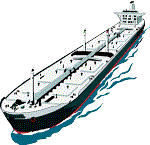Distribution: unrestricted
ON VIRTUALIZING GOVERNMENT:
A DESIGN SCIENCE APPROACH
by Kirby Urner
first posted to bit.listserv.geodesic 09-19-96 (graphics and hyperlinks added)
Now that we've had the chance to surf through a lot of USA government web sites, it's time to propose an alternative design philosophy. The current trend artificially impoverishes government and the political life of our nation by not seriously exploiting the advantages of cyberspace.
Predictably, government websites treat the browser as they would a member of the public happening to visit one of the federal buildings in Washington DC. The home page is like a directory posted in the lobby. Browsers with more than casual interest are directed to museum rooms off to the side, where the agency in question proudly parades its noble history and contributions. Executive offices, in the meantime, are tucked out of sight, beyond the reach of web browsers. Listen to a speech, admire the pretty logo, and follow the links to other goverment agencies, where you will find much the same layout. Ho hum.
Treating cyberspace as just another site for erecting public facades, and keeping inner workings private, shows a lack of imagination and a willful disregard for the possibilities. Whereas the Secretary of Agriculture could never deal with the logistics of a thousand tourists parading through her office on a daily basis, the web is precisely suited to giving browsers the chance to 'look over the shoulders' of elected/appointed officials, to see the world through their eyes, and thereby to gain some appreciation of their decisions and pronouncements as chronicled in the media.

 Why does the Interior Secretary think
thus and so about our national forests? Check the DOI website and
find out. Why does the Surgeon General think thus and so about
health issues facing the nation? Click here for a view of the
national healthscape as seen from this office. Sure, one could
spend hours watching C-SPAN or culling through clippings in an
effort to shed light on the viewpoint in question, but why not use
the web to lift some of this burden? Why should every voter who
wants to be well-informed have to quit the job and move into the
library? Isn't the fulfillable promise of the internet that we can
stay informed and still have time for a family?
Why does the Interior Secretary think
thus and so about our national forests? Check the DOI website and
find out. Why does the Surgeon General think thus and so about
health issues facing the nation? Click here for a view of the
national healthscape as seen from this office. Sure, one could
spend hours watching C-SPAN or culling through clippings in an
effort to shed light on the viewpoint in question, but why not use
the web to lift some of this burden? Why should every voter who
wants to be well-informed have to quit the job and move into the
library? Isn't the fulfillable promise of the internet that we can
stay informed and still have time for a family?

 The challenge, then, is to design websites "from
the inside out," using pages to give a rough sense of what it looks
like to be in this government position looking out on whatever
vista. Browsers will enjoy the understanding of the big picture
this affords, since looking at ostensibly the same world through
different high offices will have an integrating affect within their
minds: reality is multi-angled, and seeing multiple angles is a
prerequisite for having a realistic grasp.
The challenge, then, is to design websites "from
the inside out," using pages to give a rough sense of what it looks
like to be in this government position looking out on whatever
vista. Browsers will enjoy the understanding of the big picture
this affords, since looking at ostensibly the same world through
different high offices will have an integrating affect within their
minds: reality is multi-angled, and seeing multiple angles is a
prerequisite for having a realistic grasp.
 In addition, if an agency does a lousy
job with its web pages, not communicating the essence of what is on
the mind of its principals, then the actions of the leaders in
question will make no sense. If the strings attached to this
congressional office are shadowy, monetary in nature, and buried
from public view, then this or that vote will just not reconcile
with ideals and objectives framed over the officials desk
(prominantly displayed on a web page), nor add up in light of what
the web pages show of this congressperson's constituency.
In addition, if an agency does a lousy
job with its web pages, not communicating the essence of what is on
the mind of its principals, then the actions of the leaders in
question will make no sense. If the strings attached to this
congressional office are shadowy, monetary in nature, and buried
from public view, then this or that vote will just not reconcile
with ideals and objectives framed over the officials desk
(prominantly displayed on a web page), nor add up in light of what
the web pages show of this congressperson's constituency.
 Of course the level of
honesty and integrity I'm suggesting in creating a 'Virtual
Government' wherein any browser can sit behind any desk in the
system, and get a clear picture of what is going on, is
unprecedented and unattainable in the short term. But that doesn't
mean we can't adopt a new design philosophy. Let's use the web for
what it does best: giving any number of browsers up close and
personal access to vital information. Lets assist those who would
understand their goverment, rather than erecting more false
barriers and facades.
Of course the level of
honesty and integrity I'm suggesting in creating a 'Virtual
Government' wherein any browser can sit behind any desk in the
system, and get a clear picture of what is going on, is
unprecedented and unattainable in the short term. But that doesn't
mean we can't adopt a new design philosophy. Let's use the web for
what it does best: giving any number of browsers up close and
personal access to vital information. Lets assist those who would
understand their goverment, rather than erecting more false
barriers and facades.
And this design philosophy need not be limited to goverment of course. What do public and special interest groups see when they look at Washington DC? Critiquing and second-guessing is part of the business. If an incumbant does less than a credible job of painting a reality that explains his actions, then a watchdog agency can spell it out more clearly: the world as we think Congressman Bob sees it, versus how Congressman Bob's staff says he sees it.
Making a 'virtual goverment' of subjective official positions, in the form of interlinked websites tied to documents and studies, to the Library of Congress, to newspaper accounts and TV shows, to public opinion polls and market surveys, to databases, will not end the government's ability to keep its secrets. But it will help bring together already-public information in a natural order, reflective of goverment structure. By this means, goverment will be doing its job: governing by informing and integrating, rather than by concealing and obfuscating. Keeping web sites up to date, to reflect the current state of affairs, will not be a sideline left to a few interns, but a central focus of public relations. Students of government in academia will rush to boot their browsers at some surprising turn of events, to watch the ripple-effect through all reaches of the affected bureaucracies.
Describing reality has a way of changing its definition. Showing what's on the minds of our public officials will have an impact on the situations they're facing. I think these impacts will, by and large, be positive, as the public will see ever more clearly what makes government tick, and clarity is an asset in a democracy. If the trend is away from clarity, then we can be sure that, whatever principles are being served, they are nondemocratic in nature.
LINKS TO SEMI-RELEVANT OTHER TOPICS:
-
1. The concept of a ' virtual machine' gained currency in the second phase of mainframe computers. Systems operators had gotten used to having multiple disks, printers, jobs queues etc. under their control, but now the user community was expanding such that a single computer would host several sessions in real time, using a time-share approach. Whereas only one user could still be 'the' systems operator, the engineers found it most convenient to retain the whole systems viewpoint. The solution: all users were given the vantage point of a systems operator, a complete 'virtual machine' to look after and manage. In actual fact, each virtual machine would represent just a fraction of the total machine's capacity, and users would have limited powers to affect the running of the mainframe as a whole. But what was retained was the sense of ownership, and the cohesive integrity that a systems operator's viewpoint lends when working with a mainframe.
-
2. The art of memory was passed down in Western cultures in the hermetic tradition, was later picked up by Jesuit curricula and circulated to China, for example, by Matteo Ricci. The art of memory involes creating a 'virtual universe' inside one's head, supposedly reflective of the greater cosmos (structurally similar, or 'angularly identical' as we'd say in Synergetics). Because of the structural alignment of one's mind with the cosmos, decision-making would, in theory at least, yield more secure results. According to some scholars (e.g. Frances A. Yates), the design of public buildings, such as Shakespeare's Globe Theater, was consciously attuned to the inward architecture of the day, and served as an aide de memoir within an integrated paradigm uniting subjective and objective space.